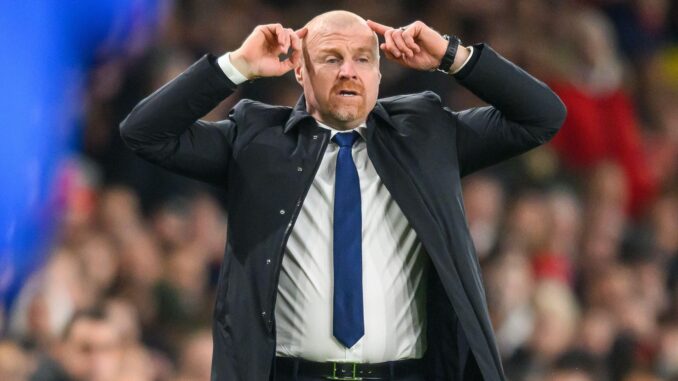
Sean Dyche calls on advice of ‘soft psychologist’ to solve big Everton problem
A “soft psychologist” is one tool Sean Dyche is employing to try to get his players to avoid overanalyzing while they are bearing down on goal.
For much of the season, the Blues have been unable to capitalize on opportunities. This was evident in their most recent matchup with West Ham United, as only one of the team’s eleven attempts on goal was able to go past keeper Alphonse Areola.
Beto scored that, which marked the first significant goal by an Everton striker since October of last year. When Beto scored the third goal in the 3-0 victory over Newcastle United in early December, it put an end to a stretch of play in which neither he nor fellow frontline striker Dominic Calvert-Lewin had found the back of the net.
Even his West Ham goal followed a missed one on one and penalty. Those – and the other opportunities that went begging – proved costly as West Ham scored twice in stoppage time to win 3-1 and extend Everton’s winless run to 10 Premier League games.
Speaking at Finch Farm before his team’s trip to Manchester United, Dyche dismissed the idea that his team needed a specialized coach to help with finishing. This was a common complaint at the beginning of the season, when Everton outperformed teams like Fulham and Wolverhampton Wanderers but suffered consequences for their lack of efficiency. Given the caliber and quantity of opportunities they have created, Everton has the biggest gap in the top flight between the number of goals they have scored and the number of goals they were predicted to score.
Thinking further about whether outside help could help his players, Dyche stated: “We have a psychologist that I’ve worked with for a long time who I refer to as a’soft’ psychologist. However, it’s possible to overthink these topics since everyone does.
As a result, Dyche is eager for his players to improve their finishing instincts. “Just call it zone thinking—automatic behaviors have a purpose,” he said. Any player, regardless of position, may operate instinctively while they are in the zone.”
Read more news on:sportupdates.co.uk

Leave a Reply